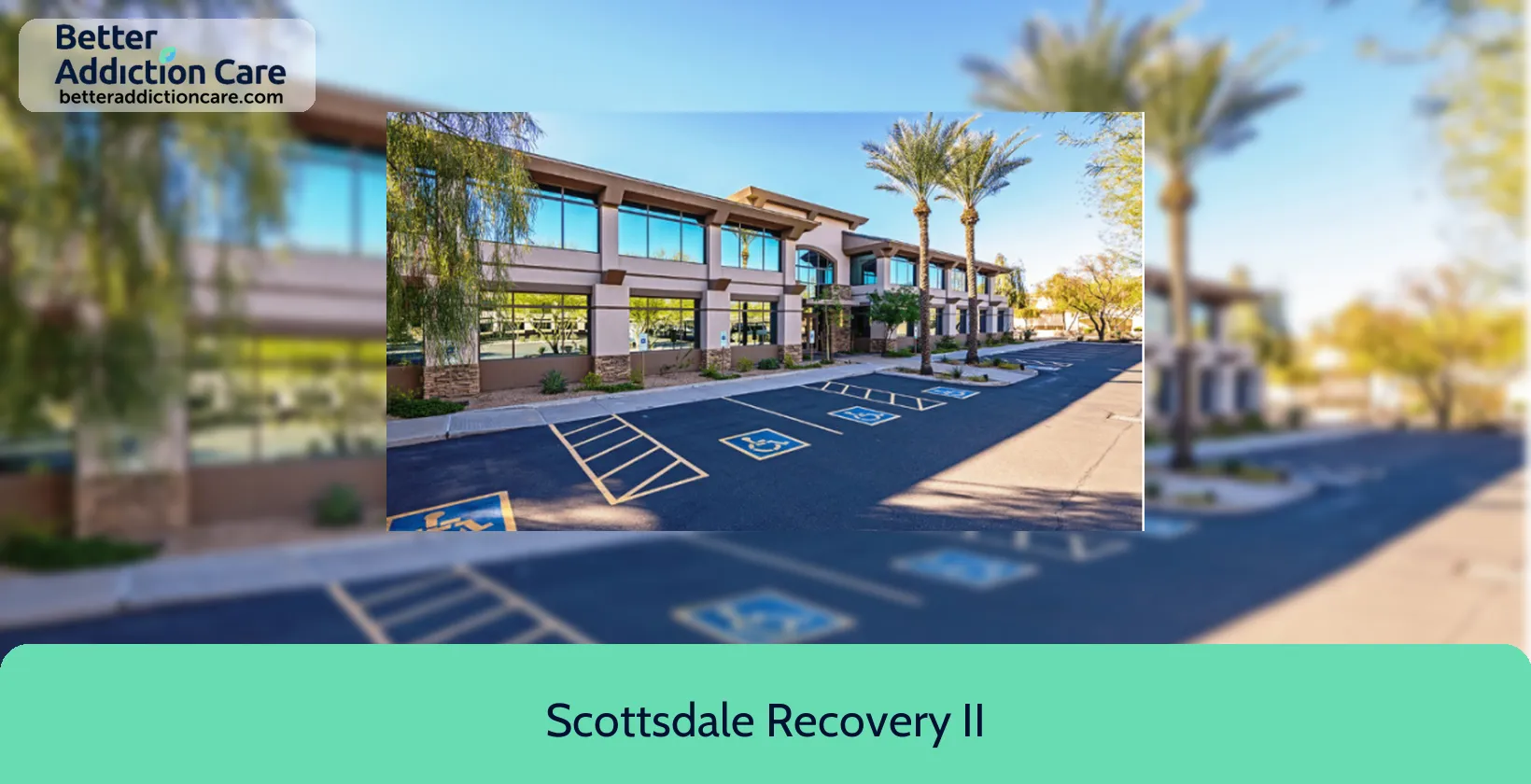Scottsdale Recovery II
Overview
Scottsdale Recovery Center provides comprehensive alcohol and drug rehabilitation services for adults across Arizona. With several properties statewide, they offer specialized partial hospitalization and intensive outpatient services at their Scottsdale outpatient clinic. The center accepts private pay and commercial insurance, ensuring accessible treatment options for a wide range of clients.
One notable aspect of Scottsdale Recovery Center is its expansive facility and accommodating staff. Spanning 12,500 square feet, the center includes a modernly furnished client lounge, creating a welcoming and comfortable environment for recovery. Clients requiring a high level of care begin with the partial hospitalization program, which involves five hours of therapy daily. As clients progress, they can transition into the intensive outpatient program, which requires three hours of therapy each day.
The center offers flexible scheduling for therapy sessions, including evening hours, to accommodate various needs. Clients can choose to attend individual sessions or participate in group therapy. These sessions cover essential addiction-related topics such as setting healthy boundaries, effective communication, and overcoming barriers to long-term recovery. Additionally, Scottsdale Recovery Center provides psychoeducational services, trigger management techniques, and psychiatric treatment for co-occurring mental health disorders.
Treatment duration is tailored to each individual's needs, with most clients participating in programs for 30 days to one year. Many former clients have praised the clinic for its transformative impact on their lives, highlighting the caring, compassionate, and professional nature of the staff.
Scottsdale Recovery Center holds accreditation from The Joint Commission, is LegitScript verified as of November 2019, is listed with SAMHSA, and is licensed by the state of Arizona. This ensures that they meet the highest standards of care and compliance in the field of addiction treatment.
Scottsdale Recovery II at a Glance
Payment Options
- Cash or self-payment
- Medicaid
- Private health insurance
- Monthly
- Self-pay options
Assessments
- Screening for tobacco use
- Comprehensive mental health assessment
- Comprehensive substance use assessment
- Outreach to persons in the community
- Screening for mental disorders
Age Groups
- Young adults
- Adults
- Seniors or older adults
- Adolescents
Ancillary Services
- Case management service
- Integrated primary care services
- Suicide prevention services
- Mental health services
- Social skills development
Highlights About Scottsdale Recovery II
8.02/10
With an overall rating of 8.02/10, this facility has following balanced range of services. Alcohol Rehabilitation: 8.00/10, Drug Rehab and Detox: 7.85/10, Insurance and Payments: 7.33/10, Treatment Options: 8.91/10.-
Treatment Options 8.91
-
Alcohol Rehabilitation 8.00
-
Drug Rehab and Detox 7.85
-
Insurance and Payments 7.33
Accreditations
The Joint Commission:

The Joint Commission accreditation for addiction and behavioral health is a prestigious recognition signifying a facility's commitment to delivering high-quality care and safety for individuals dealing with substance abuse and mental health issues. It involves rigorous evaluations and assessments, ensuring patients receive evidence-based treatment and exceptional care. This accreditation demonstrates a facility's dedication to continuous improvement and ethical practices, building trust among patients and healthcare professionals seeking top-tier addiction and behavioral health services.
Effective date: 05/19/2015
Registration: 539440
NAATP:

The NAATP accreditation is a recognized certification for addiction and behavioral health facilities. This accreditation serves as a validation of a center's commitment to maintaining high standards in the field. It signifies that the facility has met specific criteria and requirements set by NAATP, ensuring that individuals seeking addiction and behavioral health services can expect a level of quality and professionalism in their care. NAATP accreditation is a notable benchmark for facilities striving to provide effective and ethical treatment within this critical healthcare sector.
SAMHSA certification for opioid treatment program (OTP):
SAMHSA's Opioid Treatment Programs (OTP) Accreditation is a rigorous recognition process, signaling an OTP's commitment to high-quality care for those with opioid use disorders. It assures patients, families, and the community that the program adheres to evidence-based practices, maintains a safe environment, and employs qualified staff. This accreditation represents a commitment to addressing the opioid epidemic and promoting recovery, symbolizing quality and accountability in opioid addiction treatment.
State department of health:

Government agencies issue State Licenses, granting permission to rehabilitation organizations to conduct their business operations lawfully within specific geographic regions. Generally, the particular rehabilitation programs offered by a facility and its physical location dictate the necessary licenses needed for legal operation.
Registration: OTC7795
LegitScript:

Only programs and services that successfully navigate a stringent application process launched in 2018 are granted LegitScript certification. This stringent process ensures that only reputable providers of mental health and co-occurring substance abuse treatment are eligible to be featured on Google's network while complying with HIPAA privacy laws.
Treatment At Scottsdale Recovery II
Treatment Conditions
- Alcoholism
- Substance use treatment
- Co-occurring Disorders
- Opioid Treatement
Care Levels
- Outpatient
- Outpatient methadone/buprenorphine or naltrexone treatment
- Outpatient day treatment or partial hospitalization
- Intensive outpatient treatment
- Regular outpatient treatment
Treatment Modalities
- Cognitive behavioral therapy
- Telemedicine/telehealth therapy
- Substance use disorder counseling
- Trauma-related counseling
- Smoking/vaping/tobacco cessation counseling
Ancillary Services
Additional Services
- Pharmacotherapies administered during treatment
- Mentoring/peer support
- Breathalyzer or blood alcohol testing
Special Programs
- Clients with co-occurring mental and substance use disorders
- Clients who have experienced trauma
Get Help Now
Common Questions About Scottsdale Recovery II
Contact Information
Other Facilities in Scottsdale
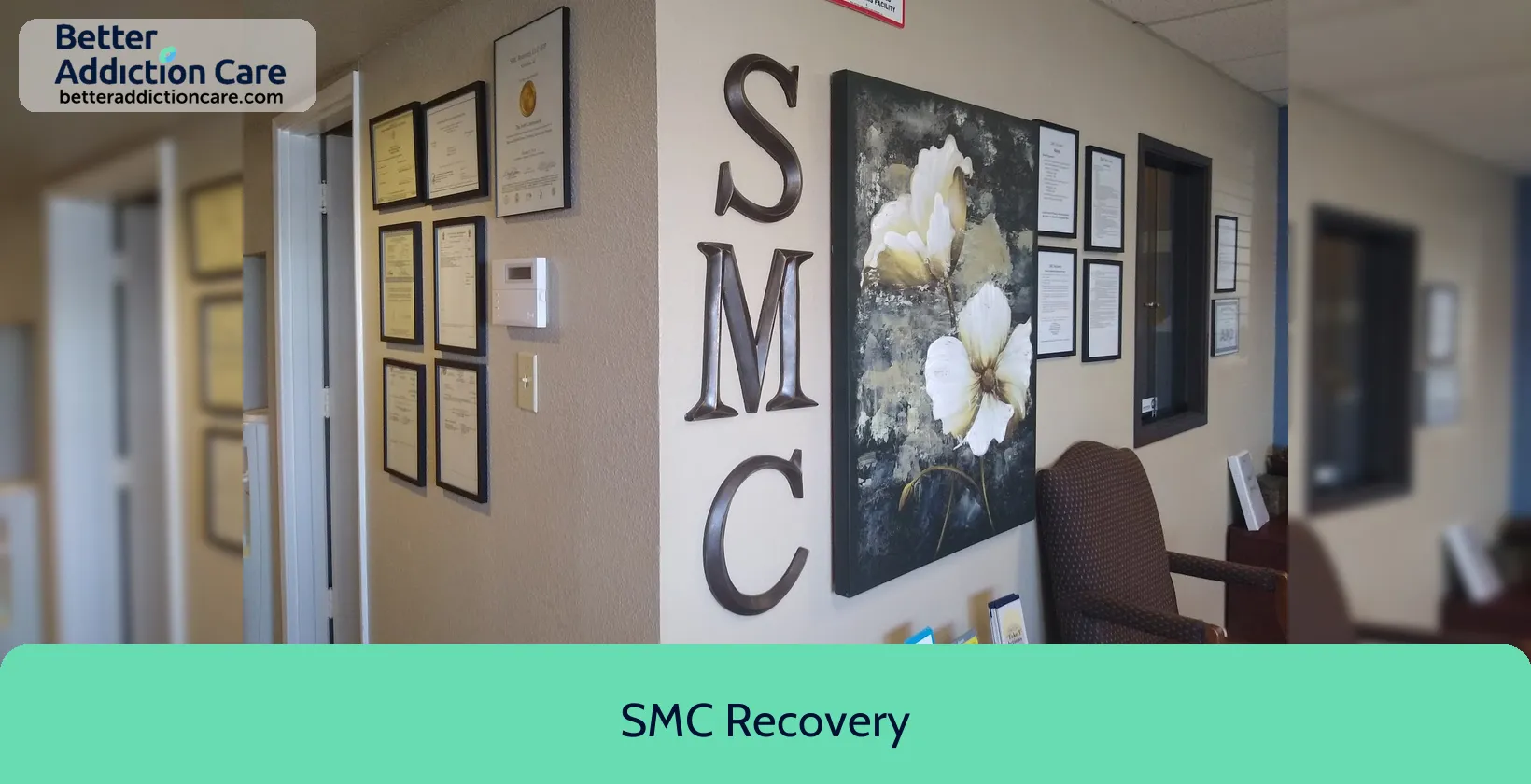
7.28
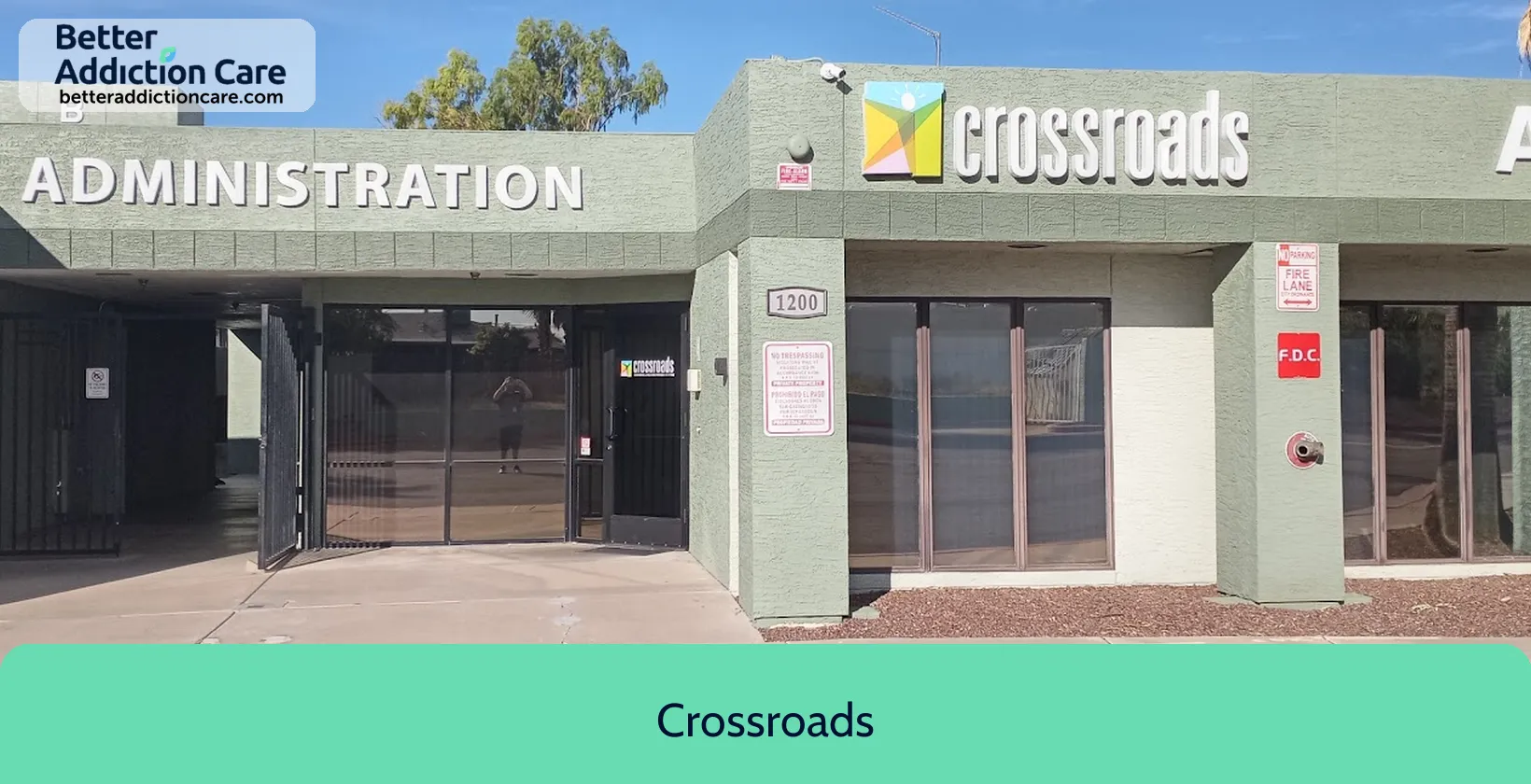
7.43
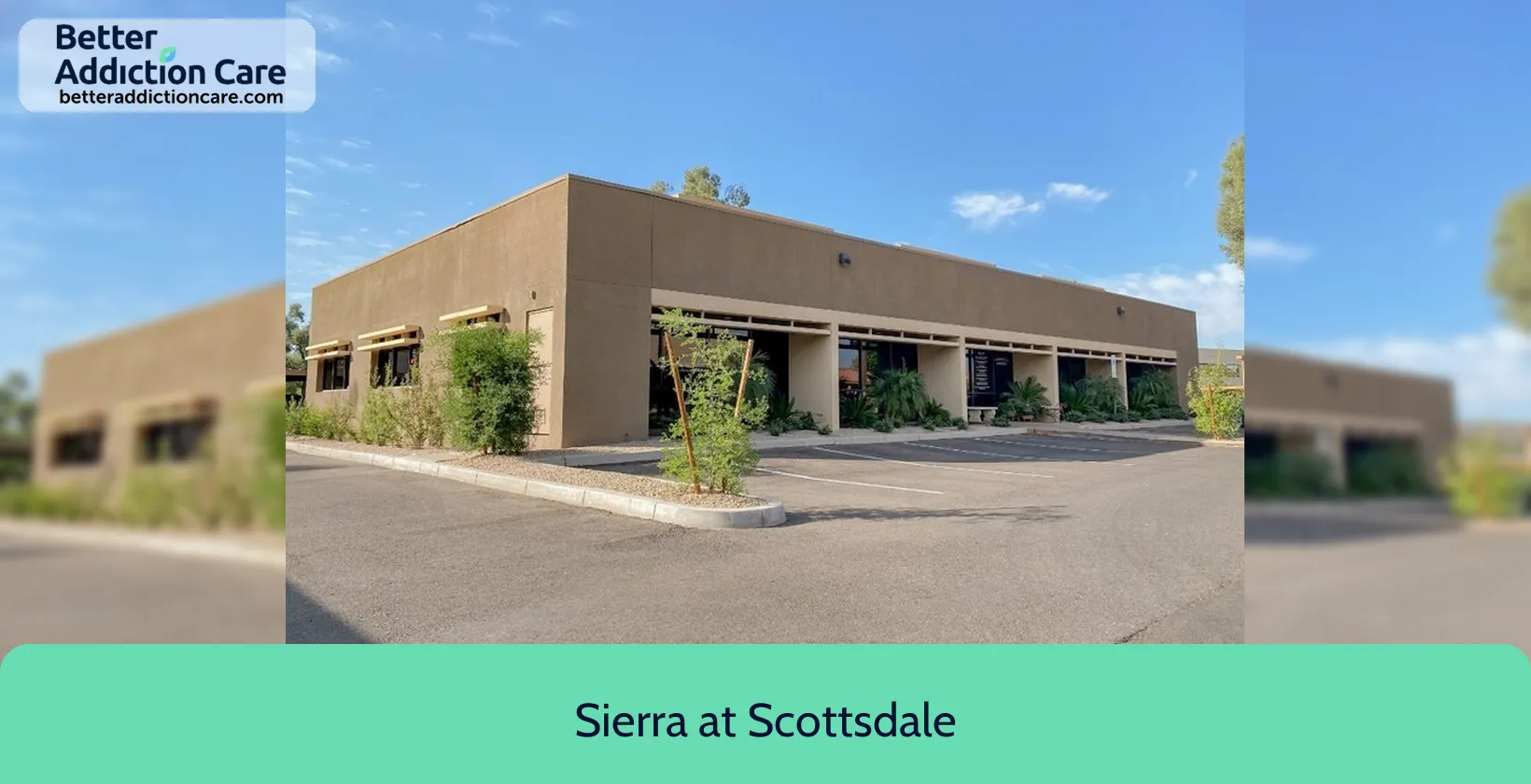
7.35
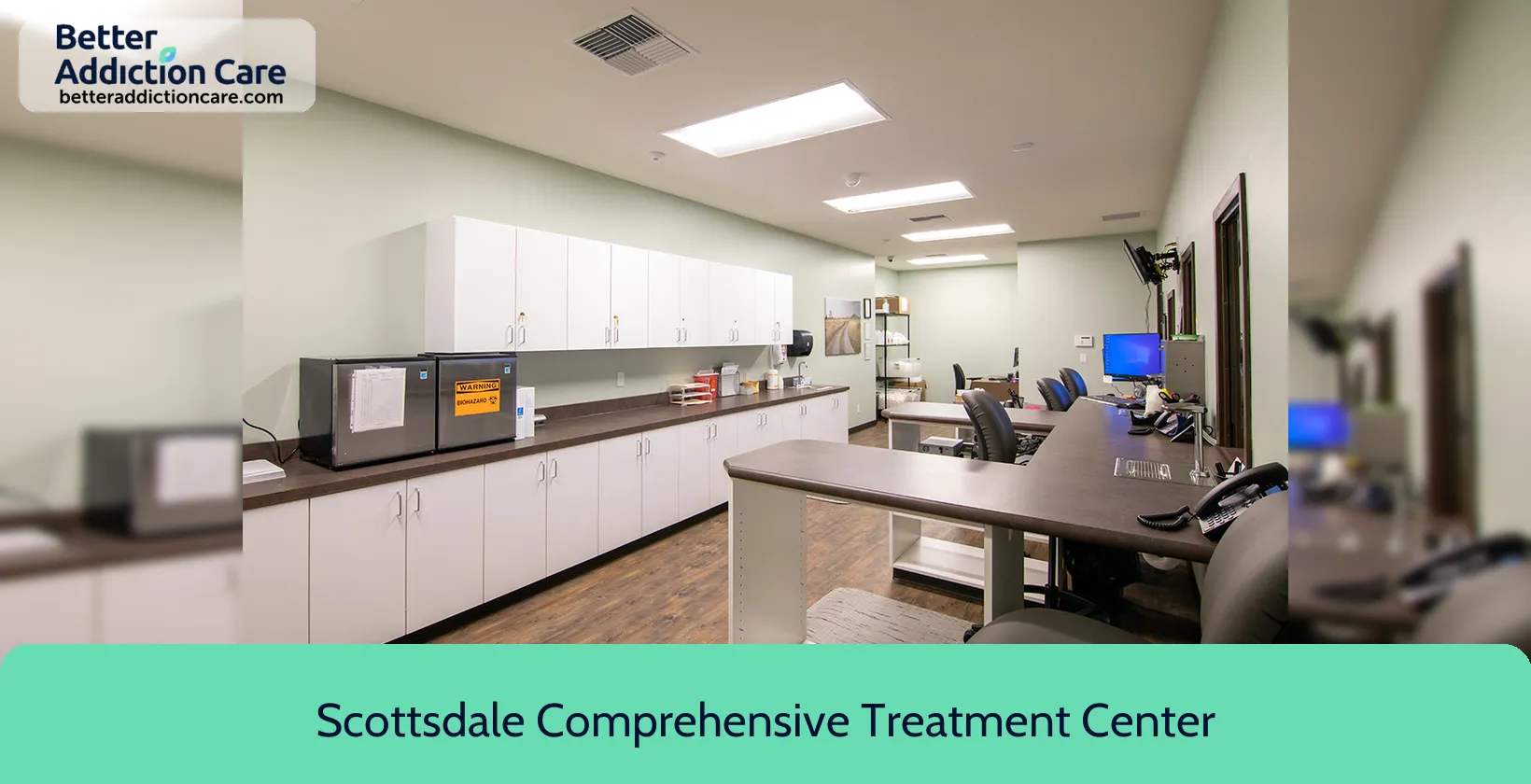
6.75
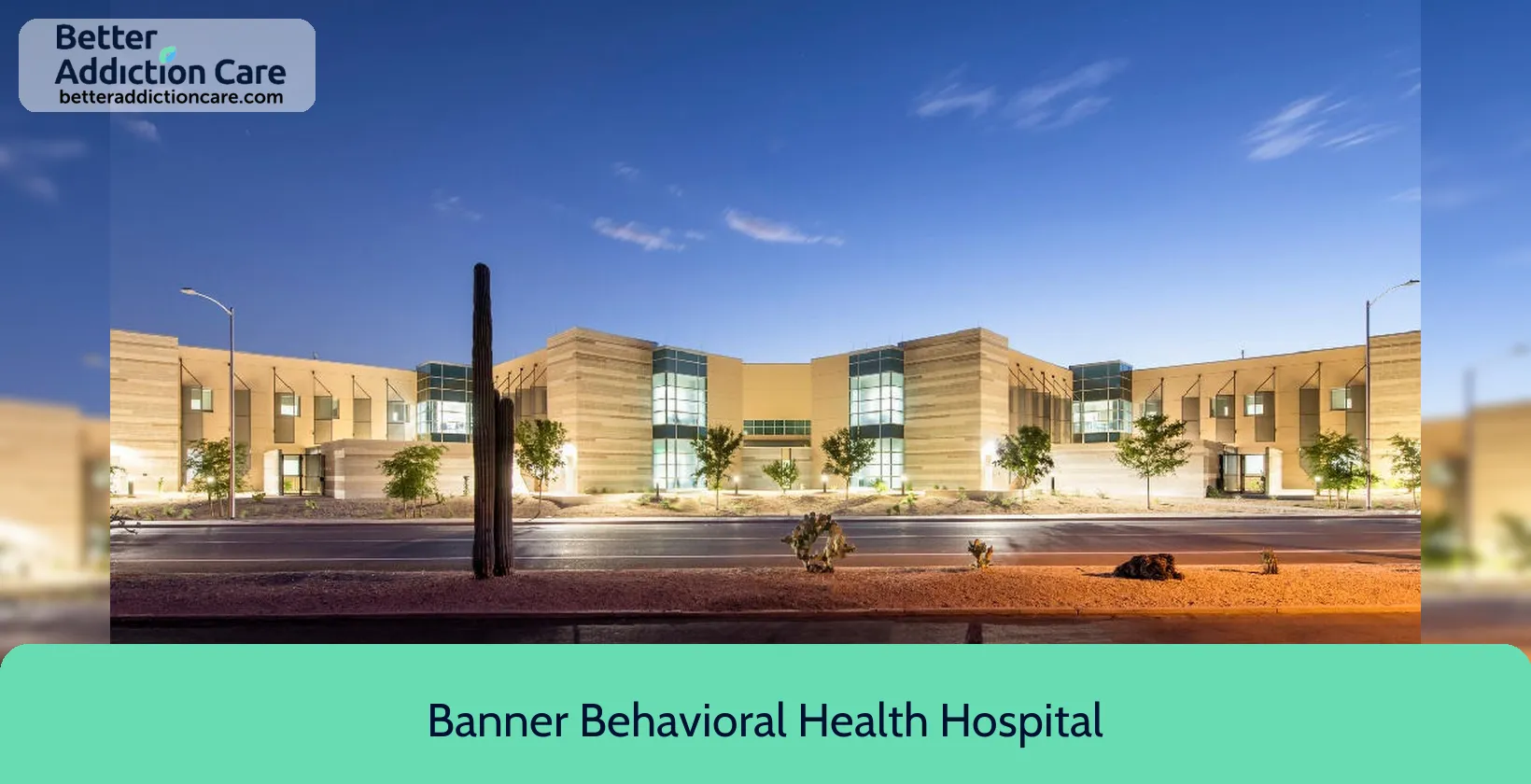
7.42
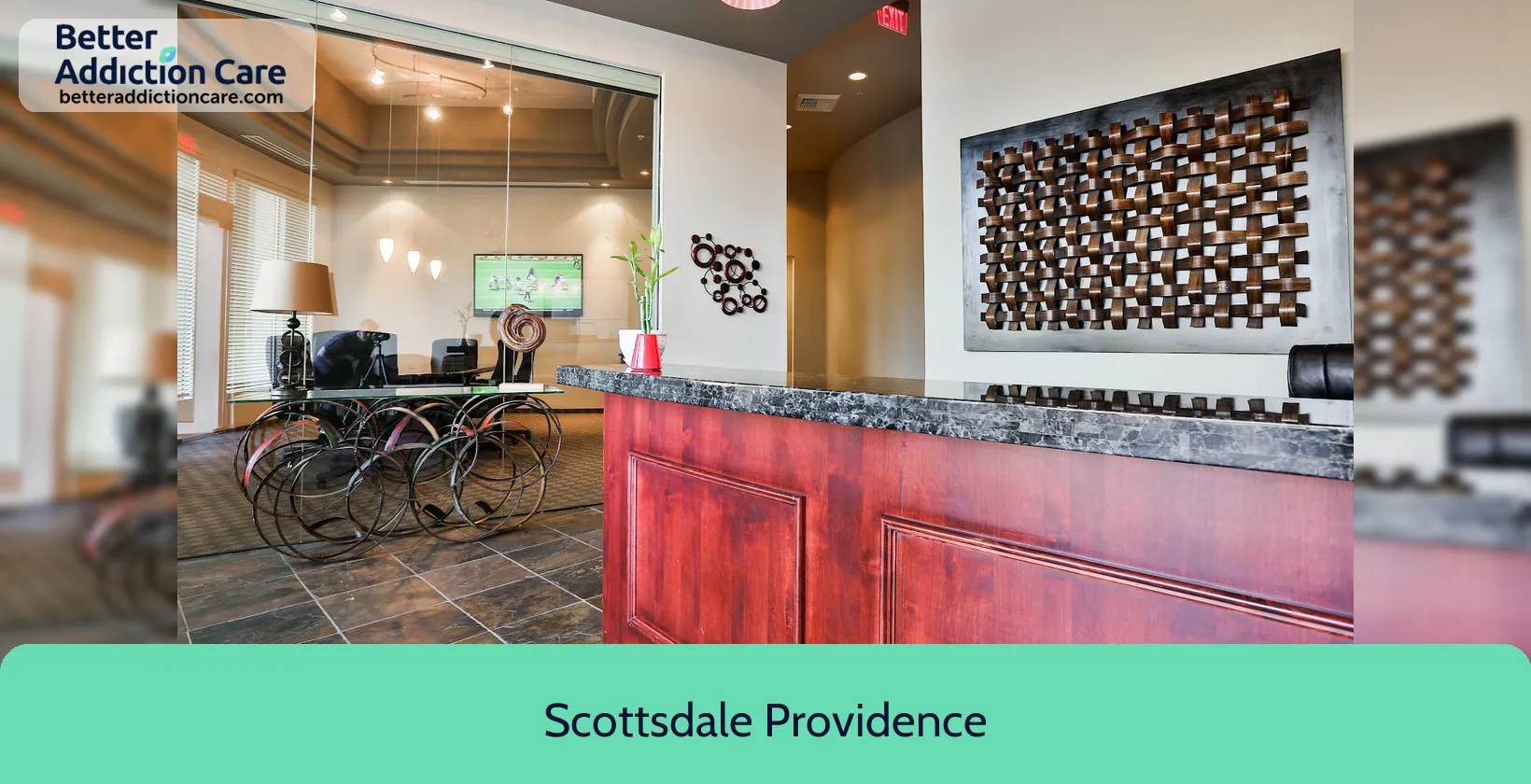
7.62
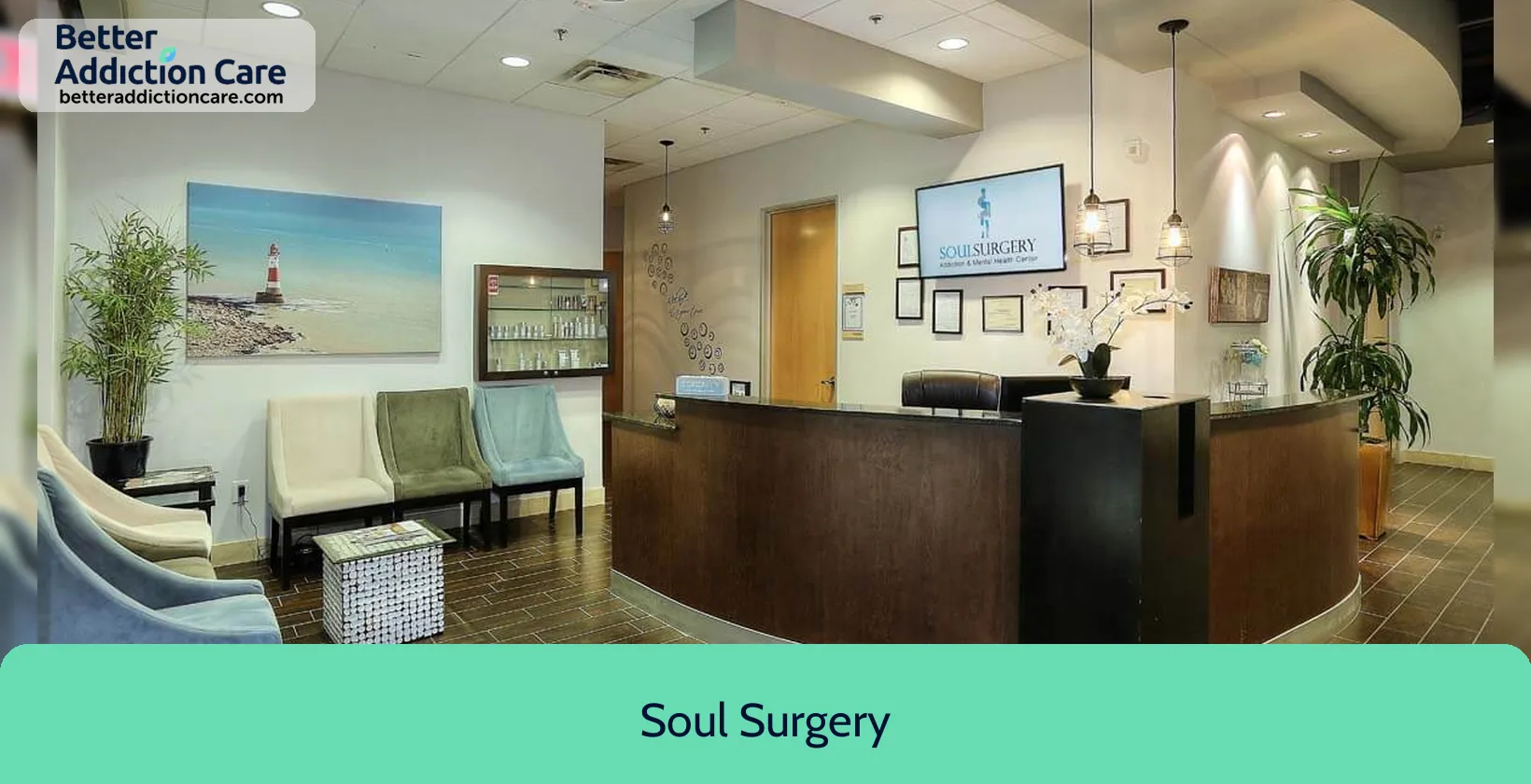
8.02
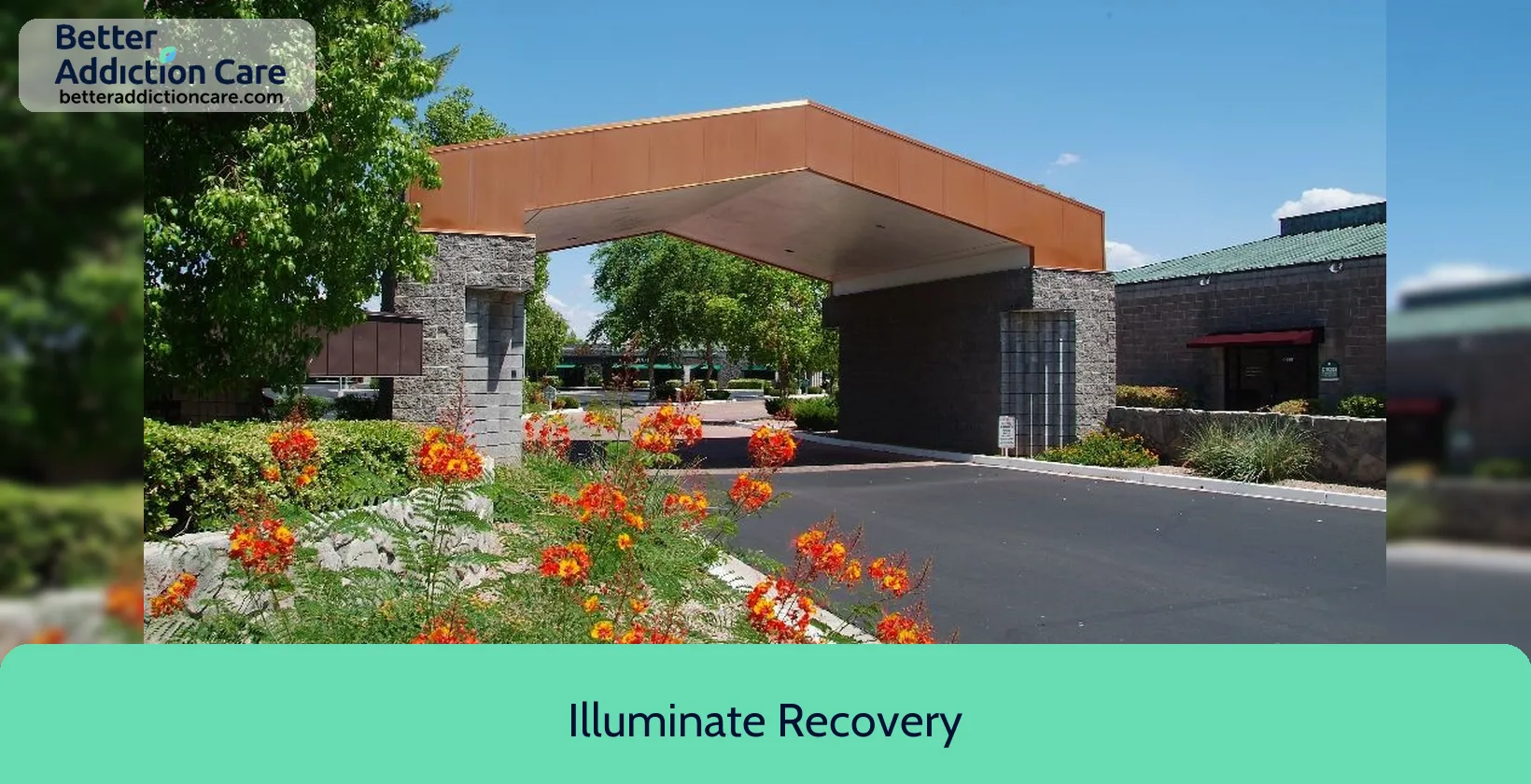
7.77
Browse rehab centers near Scottsdale and in other cities across Arizona
DISCLAIMER: The facility name, logo and brand are the property and registered trademarks of Illuminate Recovery, and are being used for identification and informational purposes only. Use of these names, logos and brands shall not imply endorsement. BetterAddictionCare.com is not affiliated with or sponsored by Illuminate Recovery.
